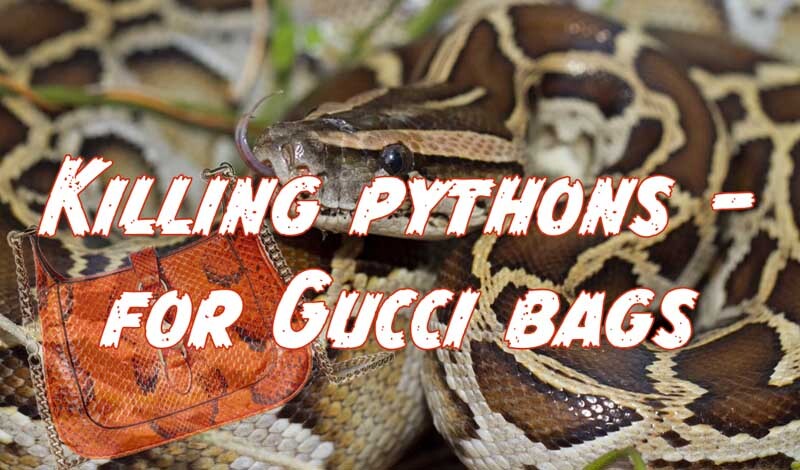
DLNews Animals/Pets:
In a shocking revelation that casts a dark shadow over the luxury fashion industry, animal rights organization PETA has exposed the brutal and inhumane treatment of pythons at farms in Thailand. These farms supply skins for shoes, belts, and handbags for the esteemed Italian brand Gucci. This distressing information, which includes evidence of pythons being beaten with hammers, impaled on hooks and skinned alive, was shared exclusively with CBS News by PETA, highlighting the gruesome reality behind the production of high-end fashion accessories.
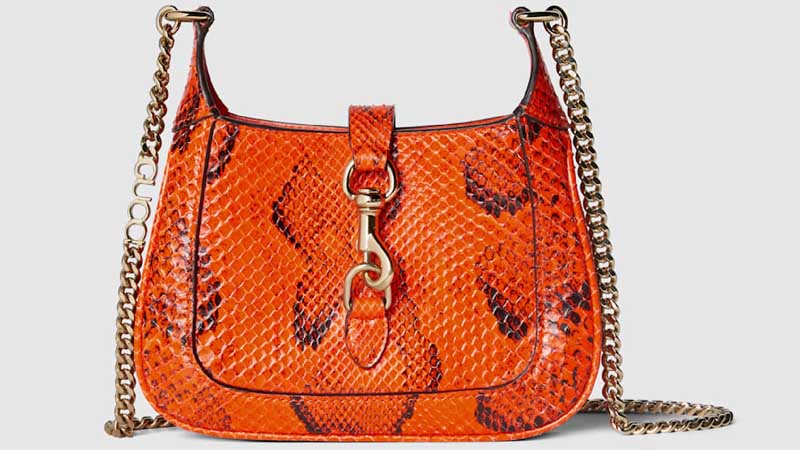
The Gucci “Jackie Notte Python Mini Bag” is available for 5300 dollars (approximately 4850 euros). According to the Gucci website, it is made of orange python leather.
Over several months, from February to November of the previous year, PETA operatives infiltrated two python farms: "Sisatchanalai" in Sukhothai and "Closed-Cycle Breeding International" in Uttaradit. Their investigations unveiled the cruel practices inflicted upon these animals before their skins were transformed into luxury items that command exorbitant prices in the fashion market.
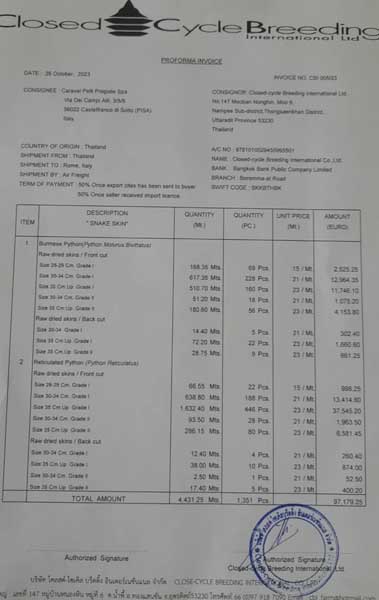
The invoice from the Python farm to an exotic leather tannery in Italy. Gucci bought this tannery 2001 and advertised the quality promise of “Made in Italy.”
The footage obtained by PETA and reported by CBS News is not for the faint-hearted. It depicts the violent methods employed to harvest the skins of these creatures: pythons are shown being mercilessly beaten, their bodies inflated with water to facilitate the skinning process, and ultimately skinned while still alive—a process that is not only brutal but prolonged, with some animals remaining alive for hours or even days during their ordeal.
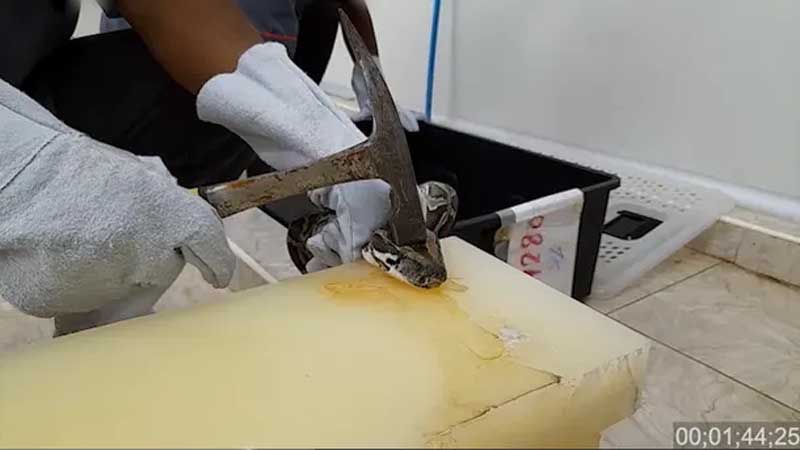
To make Gucci bags, pythons are severely mistreated, tortured and killed in Thailand (here with a pickaxe), as PETA has now revealed.
PETA's findings suggest that this cruelty is not isolated, with up to 15,000 snakes housed on these Thai farms and an estimated 20 to 30 pythons slaughtered daily. Documents provided by PETA include an invoice from the "Closed Cycle Breeding International" farm, which is linked to the Italian tannery "Caravel Pelli Pregiate Spa," acquired by Gucci in 2001 and now a part of the French conglomerate Kering, which owns Gucci. Despite repeated inquiries from CBS News and other media outlets, Kering has remained silent.
This exposé raises serious questions about the ethical standards professed by luxury brands. Gucci claims to uphold "the highest animal welfare standards" with its suppliers, a statement that seems starkly at odds with the evidence presented. Liz Cabrera Holtz, from "World Animal Protection," underscores the grim reality faced by wild animals used in the fashion industry, stating that their lives are "full of misery from beginning to end."
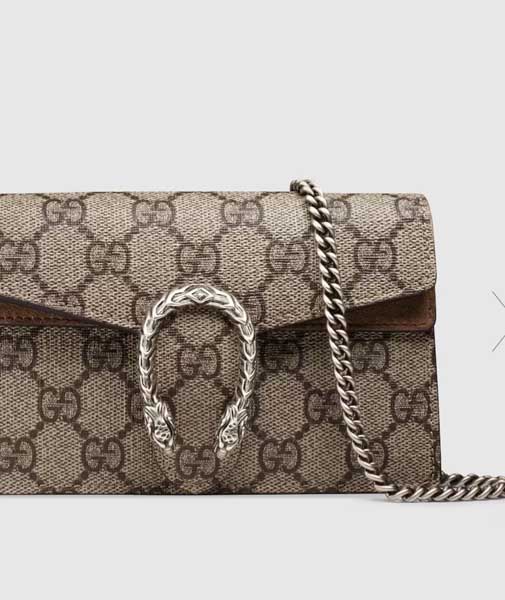
The snake symbol appears repeatedly as a buckle on a Gucci bag.
As consumers, it is imperative to question the origins of the products we buy and the practices we inadvertently support. The suffering of these pythons for the sake of fashion reveals a disregard for animal welfare and challenges us to reflect on the values we endorse through our purchases. In a world increasingly conscious of ethical consumption, it's a stark reminder that the cost of luxury extends far beyond the price tag.

Desert Local News is an invitation-only, members-based publication built on fact-checked, non-biased journalism.
All articles are publicly visible and free to read, but participation is reserved for members—comments and discussion require an invitation to join.
We cover local, state, and world news with clarity and context, free from political agendas, outrage, or misinformation.
Comments